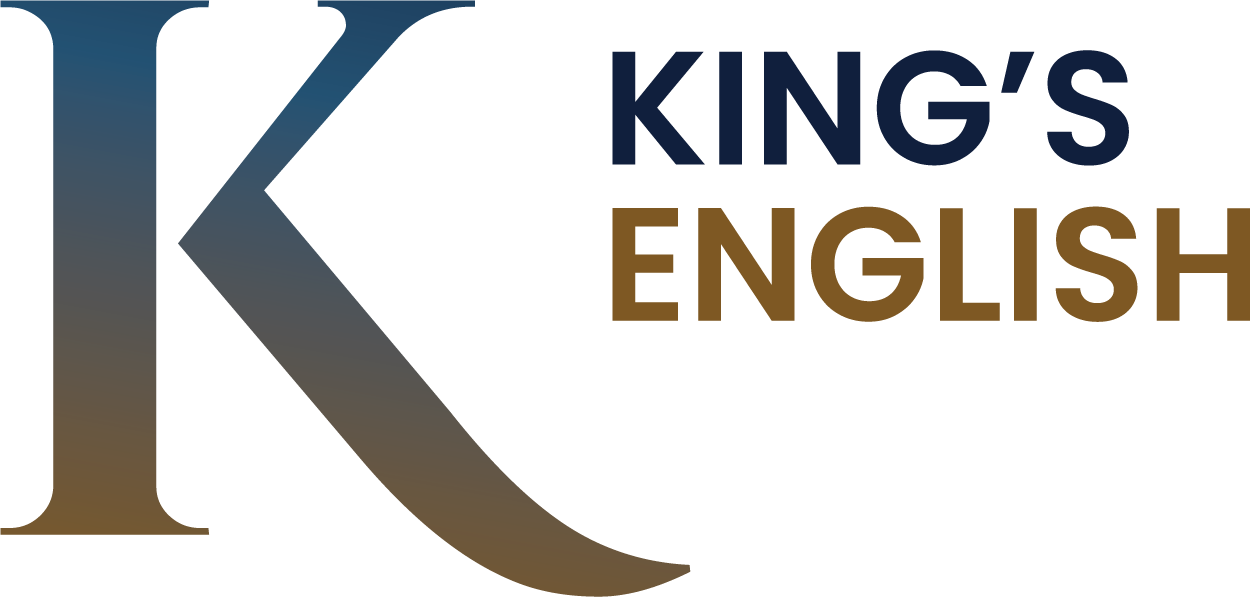Activities and achievements

- The Queen's English Society, renamed the King's English Society on 24 September 2024, was founded in 1972 by Joe Clifton, an Oxford graduate and schoolteacher. A letter he had sent to his local newspaper (the West Sussex Gazette), drawing attention to the decline in standards of English he had noticed at the time, inspired so many sympathetic responses from readers that he was encouraged to form a group to address the issues. Thus the Queen’s English Society was born, and the Society remains driven by the firm contention that while language develops and evolves over time, clarity of expression and effective communication entail knowledge and understanding of correct usage.
To this end, the objectives and activities of the Society since its inception number as follows:
1. Education: influencing decision-makers
The Society strives to work with government to ensure that all schools teach the fundamentals of English at an age-appropriate level, to establish competence in grammar, spelling, punctuation, and vocabulary that prepares children and young people for a competitive and changing world.
Since it was founded in 1972, the QES made regular representations to government on National Curriculum specifications for English in primary and secondary schools. Since the 1980s government also consulted the QES on various proposals concerning National Curriculum specifications.
As a result of the Society's responses to government consultations, the education authorities asked our President, Bernard Lamb, to join Dr Sue Horner's committee overseeing the National Curriculum for English. Despite the teachers of English on the committee being opposed to the explicit teaching and examining of grammar, spelling and punctuation, we were able to demonstrate via the results of our surveys that many university professionals and employers reported the quality of English amongst school leavers required improvement. This enabled us to persuade the committee that such teaching was the key to raising standards, and an enhanced specification was included in the National Curriculum for English in primary and secondary schools.
2. National surveys: understanding and raising awareness of standards
In the 1990s, three surveys commissioned by the QES revealed that standards of English in UK undergraduates, young recruits to industry and commerce, and even of some teachers of English, required improvement. Public responses to our findings were made in the press by three Secretaries of State for Education, and there were demands in the media for improvement of English standards. These surveys have subsequently been referred to by writers of books about standards in English, for example, Bruton-Simmonds, I, Mend Your English – or What You Should Have Been Taught In Primary School 2010 and Lamb, B C, The Queen’s English and How To Use It. Our findings were also reported in Hansard, House of Lords, 20 Apr 2006, Column 1237, Baroness Buscombe; Hansard House of Lords, 26 Nov 2009, Column 559, Lord Quirk.
3. Publicity: keeping the public informed about good standards of English
• Articles in national newspapers and education supplements.
• Regular and ongoing press releases in the national and international media including front-page exclusives funded by the papers.
• More than 200 broadcasts on television and radio, both in the UK and abroad, reaching millions of viewers and listeners in many countries.
• Regular letters to national newspapers.
• Our website which provides news of The Society and its work, and resources such as English language guides.
• Our relaunched Facebook page and our new Facebook group which will extend the reach of our website, providing news and information as well as providing a forum for discussion, engagement, education, and entertainment, so increasing interest in good use of the language.
4. The King's English Society Prize for Excellent English: rewarding and exemplifying excellence
This annual prize for excellent prose has been awarded since 1998, with a winner, runner-up, and usually four other finalists. Extracts from these six pieces, with the judges' comments, are published in The Society’s magazine, Quest, and this year will also be published on The Society’s online platforms.
In 2022, the joint winners were:
Kathy Lette for Dear daughter, you can take me away any time … - The Sunday Telegraph Travel Section, 14 March 2021;
Roger Lewis for Oozing and palely loitering - The Daily Telegraph, 6 February 2021
The closing date for entries for the Prize for Excellent English 2023 (being items published in the year 2022) is 31 May 2023.
5. Independent Publications: education and information
Since 1978, the Society has published the magazine Quest several times a year, now quarterly. Its articles range from the academic and instructive to the humorous, with discussions of many aspects of our language.
Books published by the Society include those on our national surveys, conference proceedings, a punctuation guide, and a book of extracts from Quest. Our members and patrons have written more than 50 books relating to the English language, which are listed on our website.
The Future
The King’s English Society is a registered charity (no. 272901). We depend on our modest membership fees and legacies such as the magnificent bequest from former member, Cathryn Nicoll, to fund our activities. Projects include the planned survey on English standards the results of which will enable us to make qualitative and quantitative representation to government, making awards, publicity, and supporting organisations with similar aims.

